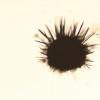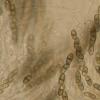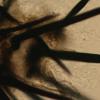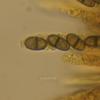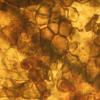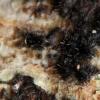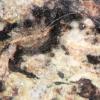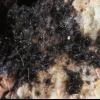
07-02-2023 22:28
Ethan CrensonHello friends, On Sunday, in the southern part of

19-02-2026 17:49
Salvador Emilio JoseHola buenas tardes!! Necesito ayuda para la ident

19-02-2026 13:50
Margot en Geert VullingsWe found this collection on deciduous wood on 7-2-

16-02-2026 21:25
 Andreas Millinger
Andreas Millinger
Good evening,failed to find an idea for this fungu

08-12-2025 17:37
 Lothar Krieglsteiner
Lothar Krieglsteiner
20.6.25, on branch of Abies infected and thickened

17-02-2026 17:26
 Nicolas Suberbielle
Nicolas Suberbielle
Bonjour à tous, Je recherche cette publication :
Black, setose on Salix
Zuzana Sochorová (Egertová),
28-06-2022 22:07
 Hello,
Hello,I would welcome some help with these little ascomycetes growing on a fallen twig of Salix, accompanied by Diatrype bullata and Orbilia cf. tremulae. Czech Republic, 200 m a.s.l..
Black, globose, setose fruit bodies (that one in the photo is 280 µm broad).
Setae up to 170 µm long, pointed, black, thick-walled, base broadened.
The wall formed by t. angularis.
Asci 8-spored, IKI-, MLZ-.
Ascospores one-septate, each half containing a guttule, (7.1) 7.2-8.6 (8.9) × (3.1) 3.2-4.2 µm,
Q = 1.8-2.8
Me = 8 × 3.6 µm
I though it could be Capronia, and Gernot Friebes´s key from ascomycete.org led me to C. inconspicua. However, its ascospores should have a different shape. I was adviced by Bjorn Wergen Capronia isn´t the right genus for my fungus. Does somebody have an idea where could this asco belong to?
Zuzana
Hans-Otto Baral,
29-06-2022 08:05

Re : Black, setose on Salix
I think this is sordarial and a member of Lasiosphaeriaceae or Helminthosphaeriaceae. Perhaps related to Helminthosphaeria?
Alain GARDIENNET,
29-06-2022 09:25
Re : Black, setose on Salix
Surely.
Zuzana Sochorová (Egertová),
29-06-2022 20:46

Re : Black, setose on Salix
Thank you, Zotto and Alain.
Nevertheless, I tried to use the key to Helminthosphaeriaceae by Andrew Miller et al. 2014, but found no good option. I would come to the point 15, and then nothing is fitting. I also tried alternative ways, but it also didn´t bring any acceptable result.
Nevertheless, I tried to use the key to Helminthosphaeriaceae by Andrew Miller et al. 2014, but found no good option. I would come to the point 15, and then nothing is fitting. I also tried alternative ways, but it also didn´t bring any acceptable result.

